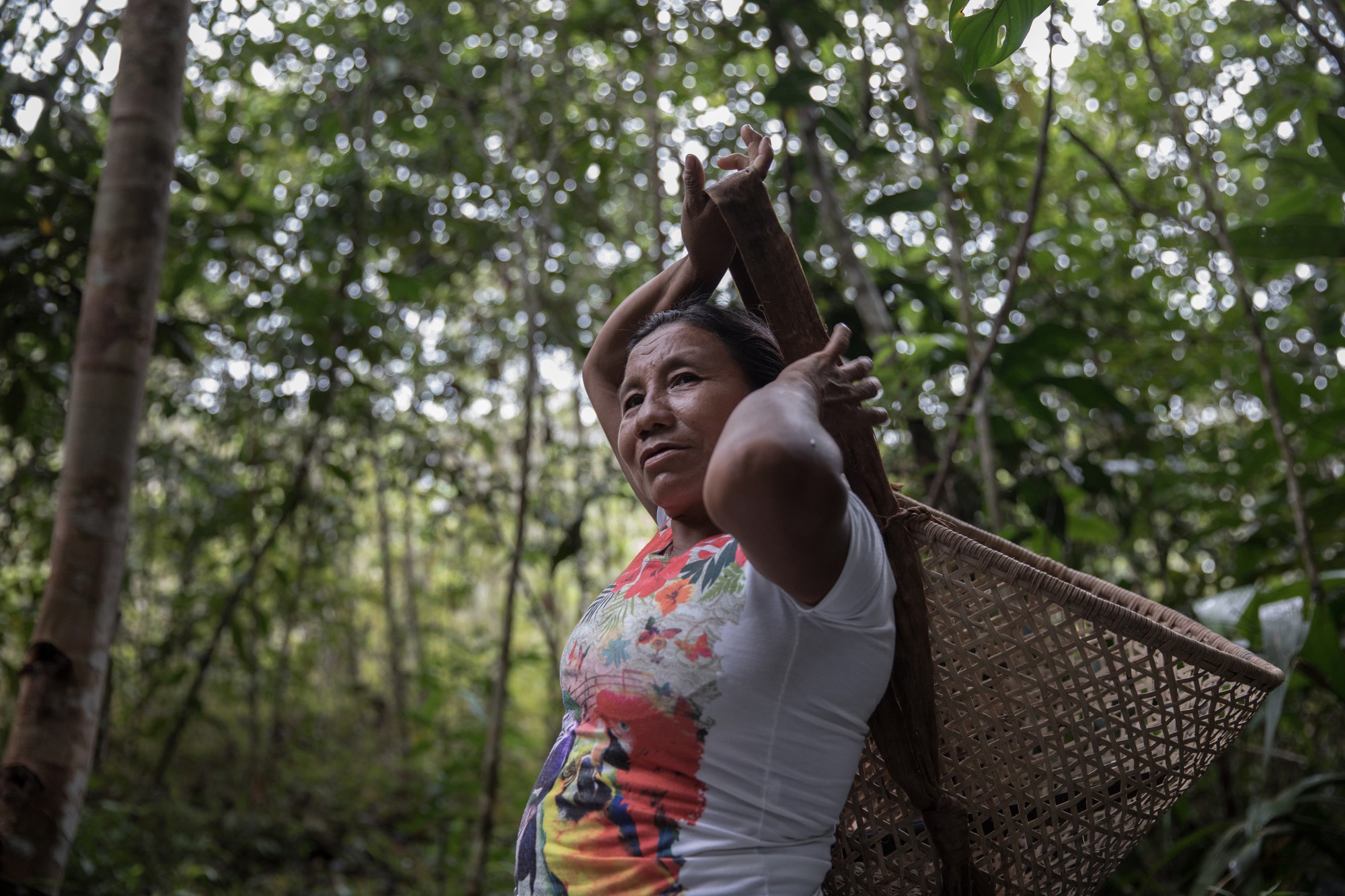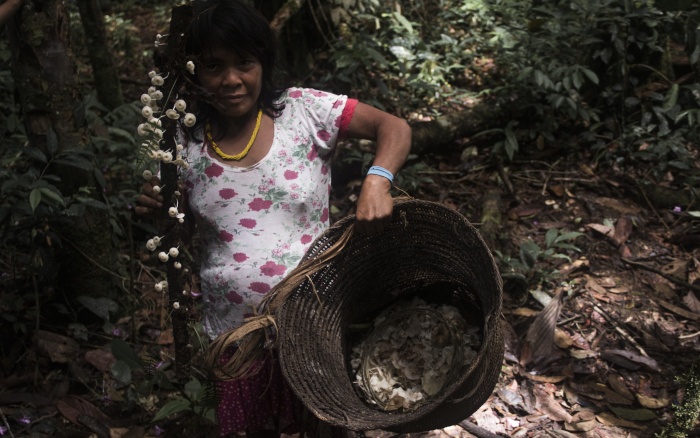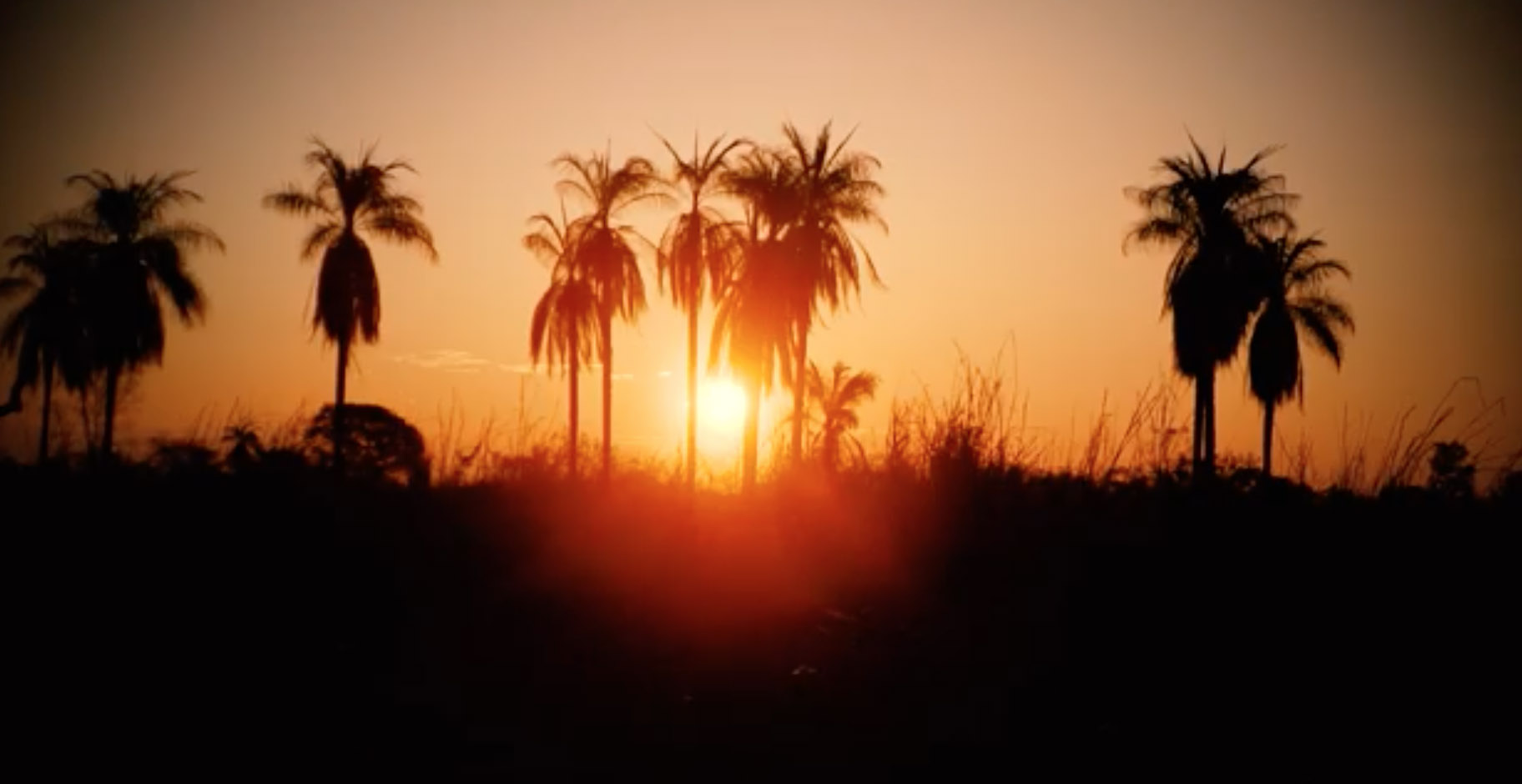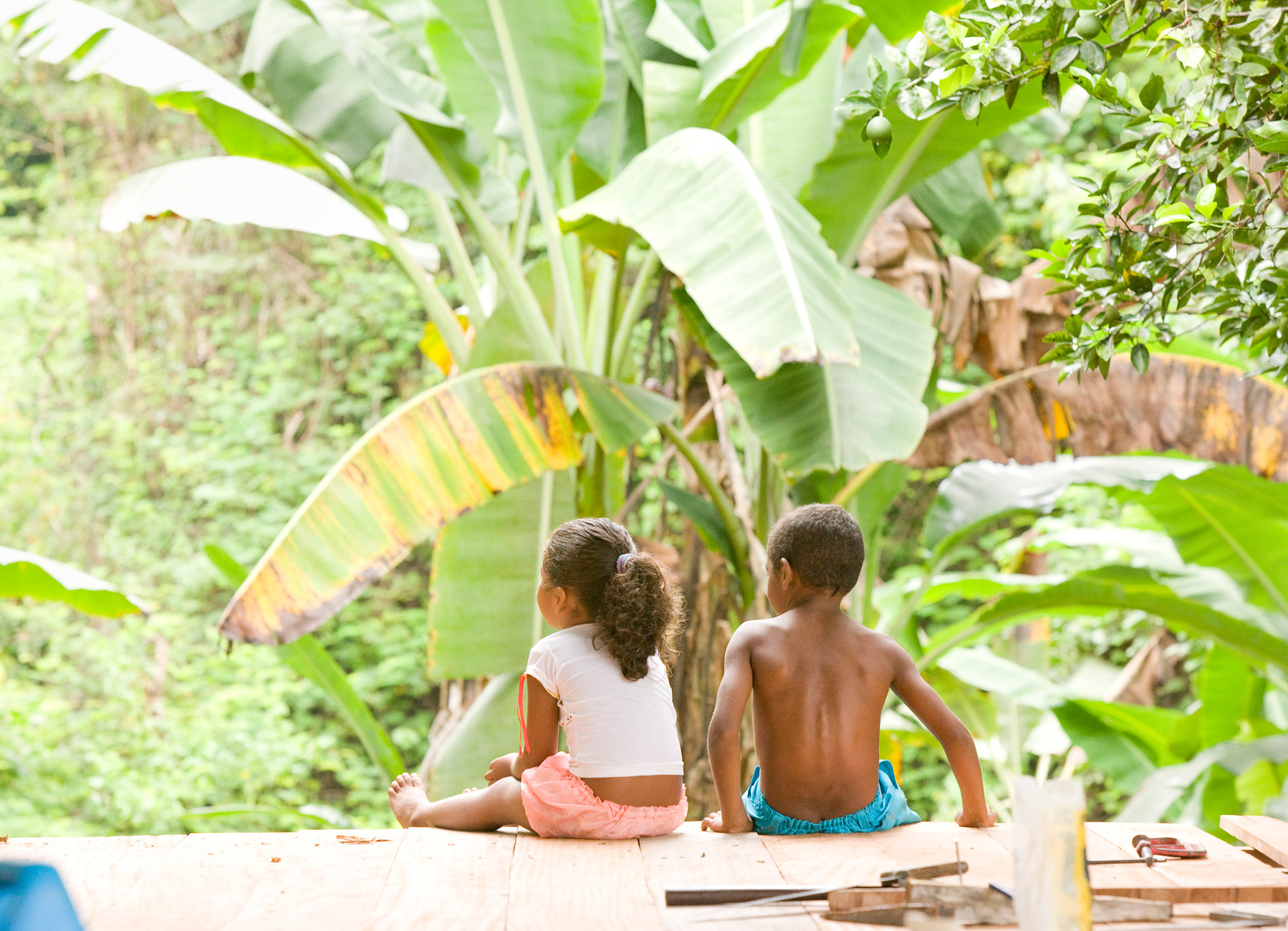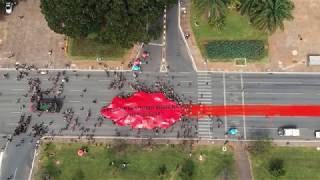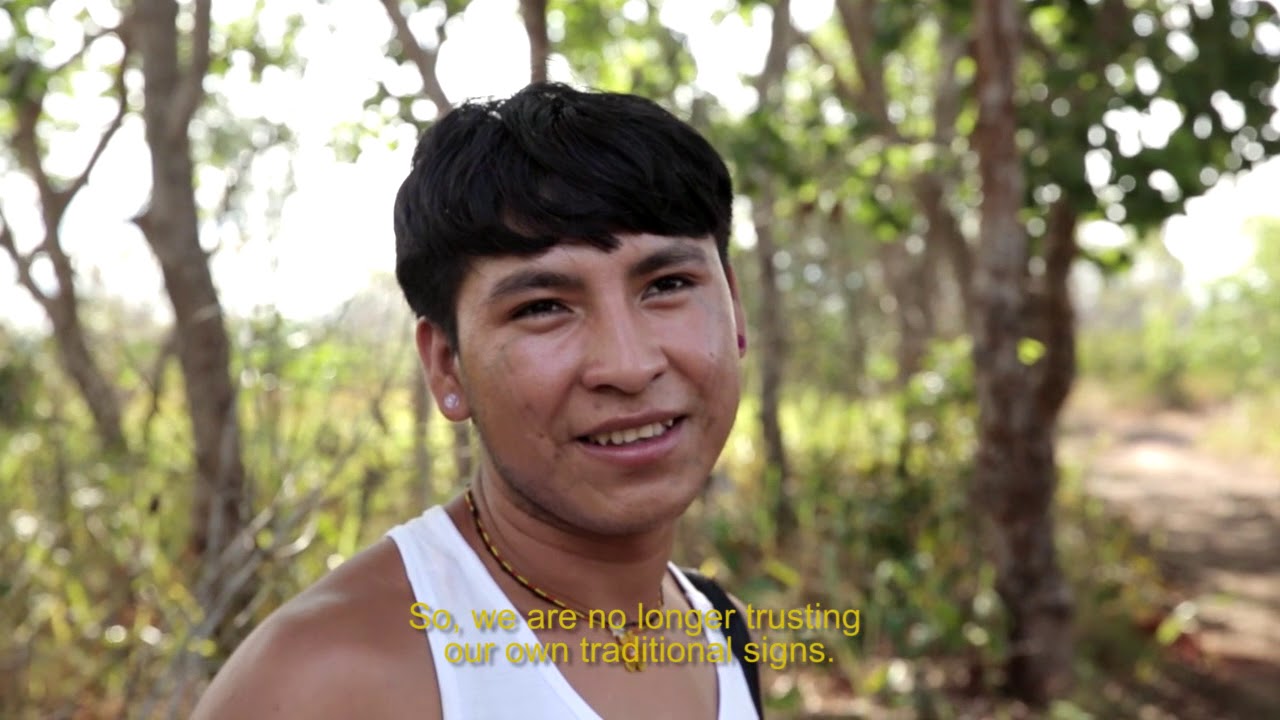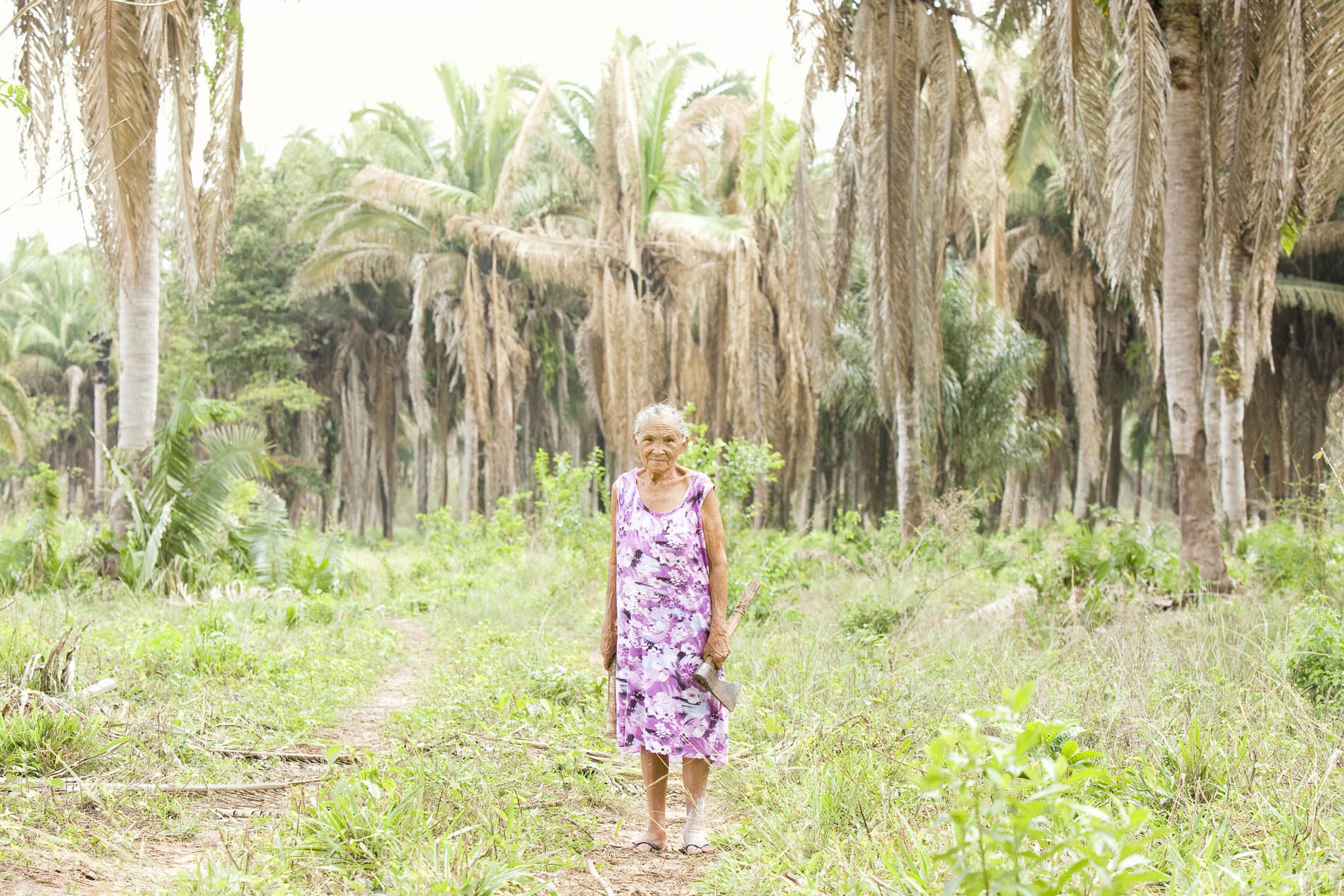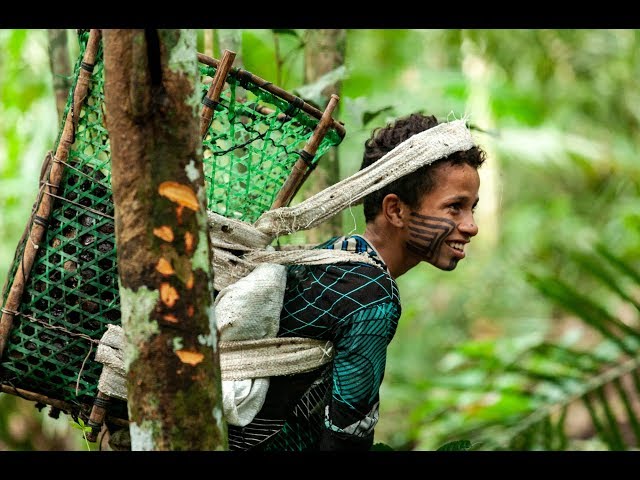The women behind Baniwa Jiquitaia Pepper
Women lead sustainable Jiquitaia Pepper farming
Tags
- Brazil
- Ethical Consumption
- Indigenous Solutions
The Baniwa women of the Upper Negro River (AM) lead the production of their traditional pepper, the Baniwa Jiquitaia Pepper. Their strength was demonstrated in the inauguration of the Canadá Community House of Pepper, on the Ayari River, in May 2018. From the farming of the peppers to the labeling, filling and management of the Houses of Pepper, the work of the women underpins the production of the jiquitaia, which is growing in both domestic and international markets and helps the communities resist the threats and pressures on their land.
Learn more about this story: http://bit.ly/2zL2A8m
-
Profile
ISA’s main focus is the defence of social and collective rights and assets related to the environment, cultural heritage and peop...
View profile
-
Film
The Yanomami Mushrooms are the first edible mushrooms native from the Amazon. Launched in 2016, the ingredient of the forest has reached different parts of Brazil and of the world, carrying with it the value of the territory and indigenous knowledge, as well a great flavor. The sale of the Yanomami Mushroom is part of […]
Watch film
BrazilEthical ConsumptionIndigenous Solutions
-
Film
“Tamuaté-Aki” (We are fed up) is a campaign from Uma Gota no Oceano and the filmmaker Marcos Prado. The result was 4 million and a half emails that were sent by the population to the National Congress, claiming the right of indigenous peoples to land demarcation in Brazil. The campaign highlights the importance of indigenous […]
Watch film
-
Film
In an effort to reduce dependence on diesel, ISA, in partnership with the communities of the Xingu Indigenous Park, and the USP Energy and Environment Institute (IEE-USP), will bring solar energy generation systems to the region. 55 schools, 22 health posts and a further ten community points to support productive activities.
Watch film
BrazilClimate ChangeIndigenous Solutions
-
Film
Brazil’s African slave descendants, the Quilombola, have fought a long and hard struggle for recognition. After the abolition of the slave trade they were left abandoned and ostracised, devoid of rights and outside of Brazilian mainstream society. But things are slowly changing amongst rural communities. In the 1988 constitution Brazil’s Quilombola were granted access to […]
Watch film
-
Film
The Brazil nut has always been a centerpiece of Wai Wai food culture. With the organization of the production chain, it has become a driver that is transforming lives and reinforcing the protection of a territory afflicted by invaders. Find out more here.
Watch film
BrazilCultureSustainable Agriculture
-
Film
The final day of the Free Land Camp 2018 was marked by a march against the continuing genocide suffered by indigenous peoples, where a large blood trail was left on the Esplanade of the Ministries to remind everyone that indigenous peoples still bleed.
Watch film
ActivismBrazilLand Rights
-
Film
In the Upper Xingu region, Brazilian Amazon, the agribusiness expansion has caused serious impact on the lives of indigenous peoples and local communities. One of the gravest consequences is the environmental and social changes that have impacted household livelihoods. The documentary follows the routines of young local leaders Anderson, Milene, Oreme and Tawa who unveil […]
Watch film
BrazilClimate ChangeCulture
-
Film
The Baniwa women of the Upper Negro River (AM) lead the production of their traditional pepper, the Baniwa Jiquitaia Pepper. Their strength was demonstrated in the inauguration of the Canadá Community House of Pepper, on the Ayari River, in May 2018. From the farming of the peppers to the labeling, filling and management of the […]
Watch film
BrazilEthical ConsumptionIndigenous Solutions
-
Film
The humble babassu palm provides a livelihood for communities of women across North Eastern Brazil. Bread, charcoal, oil and soap are produced from the nut and husk; the surplus is sold on. But production has not always been so peaceful. Babassu: Brazil’s Warrior Women tells the story of the hard battle to maintain these communities’ […]
Watch film
ActivismBrazileducational packs
-
Film
Terra do Meio in it’s fifth year brings together indigenous and local communities. The network of cantinas is able to supply traditional produce from the Amazon in a way that supports local communities and protects the forest. The Xipaya, Curuáya, Xikrin, Yudjá and Arara peoples joined by the banks of the Rio Xingu Extractive Reserves, […]
Watch film
BiodiversityBrazilCulture
